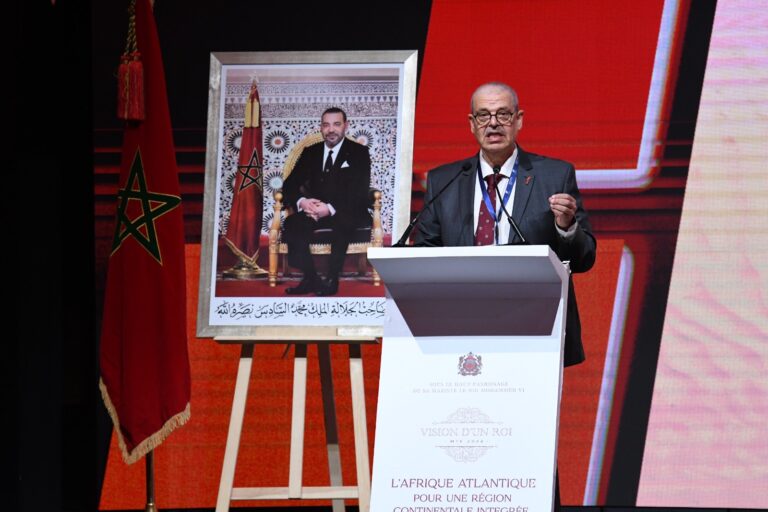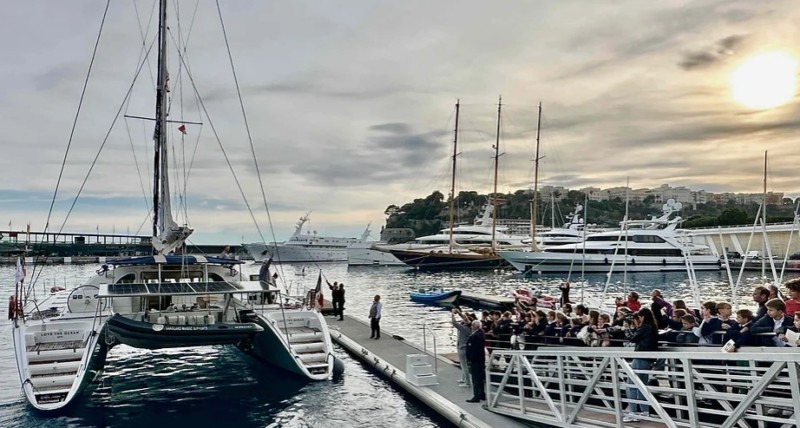Dakhla, 07 Jul 2024 (AIP) – The Royal Initiative for the Atlantic and Sahel is shaping up to be an unprecedented cooperation framework, destined to become a catalyst for regional economic development and Africa-Europe interconnection, rooted in an integrated, inclusive and prosperous Atlantic Africa, said Le Matin Group Managing Director Haitami Mohammed at the 7th Morocco Today Forum, held on Friday 05 July 2024 at the Palais des Congrès in Dakhla, Morocco.
« The Atlantic Initiative is an unprecedented framework for cooperation along the way. Indeed, the Nigeria-Morocco gas pipeline is a catalyst for regional economic development and the Africa-Europe interconnection. This initiative also provides for an Atlantic corridor at the service of an Africa-World partnership, with strong potential for the development of the blue economy », declared Mr. Haitami.
This initiative, unveiled on November 06, 2023, is specifically aimed at ensuring inclusive development for the countries on the continent’s Atlantic seaboard, and facilitating maritime access to the landlocked countries of the Sahel, such as Mali, Niger, Burkina Faso and Chad.
It is therefore based on the idea of a common destiny, a modern emancipation integrating age-old values of sharing, solidarity, exchange of experience and complementarity. It proposes a win-win strategy through the pooling of resources and means, and the development of inclusive sub-regional projects with a direct impact on populations.
With their Gross Domestic Product (GDP) quadrupling between 1990 and 2024, reaching 70 billion dollars, the Sahel countries boast one of the highest growth rates in Africa, exceeding 4.8% per year, and a moderate debt level of 56% of GDP in 2020, according to data from the World Bank and the International Monetary Fund relayed by Mr. Haitami.
The region’s natural resources are valued at 6,500 billion dollars, including 65% of the planet’s uncultivated arable land, 9% of the world’s renewable freshwater resources, and significant reserves of minerals and fossil fuels. Africa’s population, the youngest in the world with over 400 million young people aged between 15 and 35, represents a major asset for future economic development.
However, Africa faces significant challenges, he noted.
In 2022, the continent was the most affected by conflict and violence, with an annual cost of $18 billion and 10 million deaths over the past 50 years. More than 40% of the world’s out-of-school children live in Africa, requiring an additional $77 billion each year to meet national education targets, as well as the recruitment of 15 million teachers by 2030.
On the health front, the challenges are equally enormous: 700,000 cases of cholera by 2023, 218 million cases of malaria by 2022, and 230 million women and girls surviving genital mutilation. The continent also faces food insecurity, with 16 million people threatened by famine and 400 million without access to drinking water.
Climate and energy challenges are not to be outdone. Indeed, 40% of Africa’s agricultural harvest is lost due to cold chain failure, and 118 million poor people will be exposed to extreme weather events by 2030. Around 80% of people without access to electricity worldwide live in sub-Saharan Africa.
The Atlantic Initiative, with projects such as the Nigeria-Morocco Gas Pipeline, aims to turn these challenges into opportunities by strengthening basic infrastructures, creating industries and jobs, and developing natural resources.
It proposes a joint reflection on the emergence of value-creating industries and activities, the enhancement of resources and the exploitation of the blue economy, as set out during the various panels at the Dakhla 2023 Forum.
Source: Agence Ivoirienne de Presse



